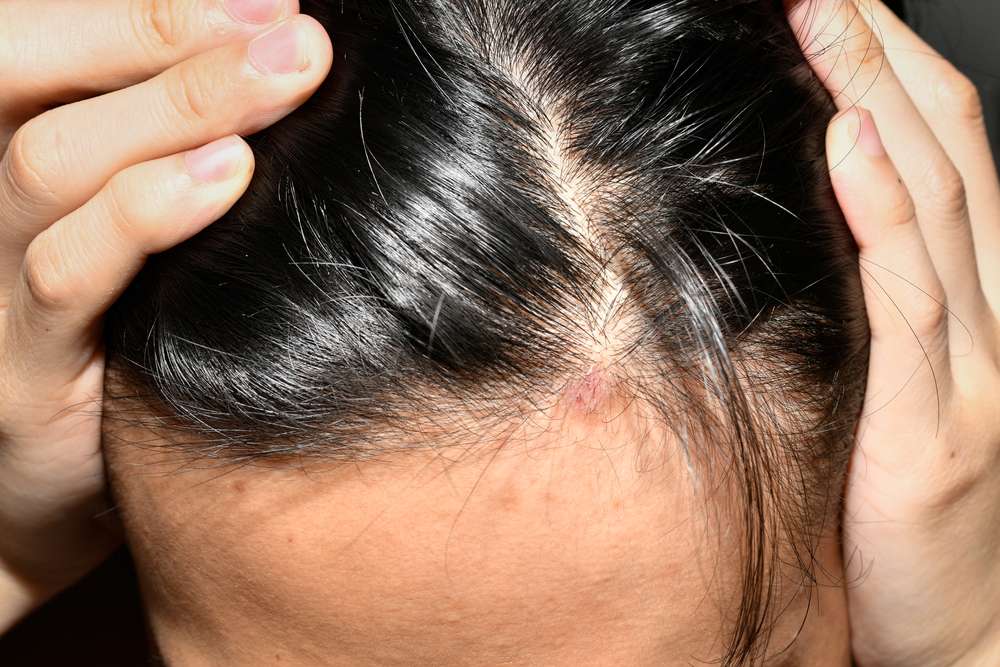Scalp Psoriasis Explained: Symptoms, Causes, and Relief Options
Scalp psoriasis is a chronic skin condition that can cause itching, flaking, and discomfort. In this article, we explore the key symptoms, possible causes, and treatment options that can help manage flare-ups and improve your quality of life without making exaggerated claims.

What are the common symptoms of scalp psoriasis?
Scalp psoriasis manifests in various ways, often causing discomfort and visible signs on the scalp. The most common symptoms include:
-
Red, inflamed patches on the scalp
-
Silvery-white scales or plaques
-
Intense itching and burning sensation
-
Dry, flaky skin that may extend beyond the hairline
-
Temporary hair loss in affected areas
These symptoms can range from mild to severe, and their intensity may fluctuate over time. In some cases, scalp psoriasis can also affect the forehead, back of the neck, and behind the ears.
What triggers scalp psoriasis flare-ups?
Understanding the triggers for scalp psoriasis flare-ups is crucial for managing the condition effectively. While the exact causes remain unclear, several factors have been identified as potential triggers:
-
Stress: High levels of stress can exacerbate psoriasis symptoms
-
Cold weather: Dry, cold conditions can lead to skin irritation and flare-ups
-
Infections: Strep throat and other infections may trigger or worsen psoriasis
-
Skin injuries: Cuts, scrapes, or sunburns can cause new psoriasis patches
-
Certain medications: Some drugs, like lithium and beta-blockers, may trigger flare-ups
-
Alcohol consumption: Excessive drinking can increase inflammation and worsen symptoms
-
Smoking: Tobacco use may increase the risk and severity of psoriasis
By identifying and avoiding these triggers, individuals with scalp psoriasis can potentially reduce the frequency and severity of flare-ups.
What are the most effective treatment options for scalp psoriasis?
Treating scalp psoriasis often requires a combination of approaches tailored to the individual’s needs. Some of the most effective treatment options include:
-
Topical corticosteroids: These anti-inflammatory medications can reduce itching and inflammation
-
Vitamin D analogs: Calcipotriene and other vitamin D-based treatments can slow skin cell growth
-
Coal tar: Available in shampoos and ointments, coal tar can help reduce scaling and itching
-
Salicylic acid: This ingredient helps remove scales and soften plaques
-
Phototherapy: Controlled exposure to UV light can slow skin cell turnover
-
Systemic medications: For severe cases, oral or injectable drugs may be prescribed
-
Biologics: These targeted therapies can help manage moderate to severe psoriasis
It’s important to work closely with a dermatologist to find the most suitable treatment plan for your specific case of scalp psoriasis.
How can you manage scalp psoriasis flare-ups at home?
While professional treatment is essential, there are several ways to manage scalp psoriasis flare-ups at home:
-
Use medicated shampoos: Alternate between tar-based and other medicated shampoos
-
Apply moisturizers: Keep the scalp hydrated to reduce itching and flaking
-
Practice gentle hair care: Avoid harsh brushing and use lukewarm water when washing
-
Try natural remedies: Aloe vera or tea tree oil may provide relief for some individuals
-
Manage stress: Engage in relaxation techniques like meditation or yoga
-
Maintain a healthy diet: Consume anti-inflammatory foods and stay hydrated
-
Use a humidifier: Adding moisture to the air can help prevent dry skin
Remember that while these home remedies can help, they should not replace professional medical advice and treatment.
What daily care routines are recommended for sensitive scalps?
For those with scalp psoriasis, establishing a gentle daily care routine is crucial. Here are some recommendations for sensitive scalps:
-
Use a soft-bristled brush to detangle hair gently
-
Avoid hot showers and opt for lukewarm water when washing your hair
-
Limit hair washing to 2-3 times a week to prevent drying out the scalp
-
Apply leave-in conditioners or scalp oils to keep the skin moisturized
-
Avoid harsh hair treatments like perms, dyes, or excessive heat styling
-
Protect your scalp from sun exposure with hats or scalp sunscreen
-
Choose fragrance-free and hypoallergenic hair products
By following these daily care routines, you can help minimize irritation and maintain a healthier scalp environment.
How do different treatment options compare in effectiveness and cost?
When considering treatment options for scalp psoriasis, it’s important to weigh both effectiveness and cost. Here’s a comparison of some common treatments:
| Treatment | Effectiveness | Average Monthly Cost |
|---|---|---|
| Topical corticosteroids | High for mild to moderate cases | $20 - $50 |
| Coal tar shampoo | Moderate | $10 - $30 |
| Salicylic acid products | Moderate | $15 - $40 |
| Phototherapy | High for moderate to severe cases | $100 - $300 per session |
| Biologics | Very high for severe cases | $2,000 - $10,000 |
Prices, rates, or cost estimates mentioned in this article are based on the latest available information but may change over time. Independent research is advised before making financial decisions.
It’s important to note that the effectiveness of treatments can vary from person to person, and what works best for one individual may not be as effective for another. Additionally, many insurance plans cover psoriasis treatments, which can significantly reduce out-of-pocket costs. Always consult with a healthcare provider to determine the most appropriate and cost-effective treatment plan for your specific case.
In conclusion, scalp psoriasis is a complex condition that requires a comprehensive approach to management. By understanding the symptoms, triggers, and available treatment options, individuals can work with their healthcare providers to develop an effective strategy for controlling flare-ups and improving their quality of life. Remember that persistence and patience are key, as finding the right combination of treatments may take time.
This article is for informational purposes only and should not be considered medical advice. Please consult a qualified healthcare professional for personalized guidance and treatment.




